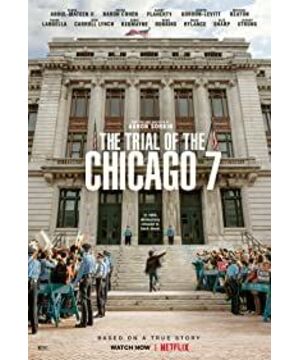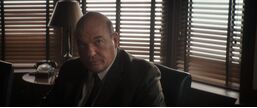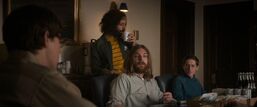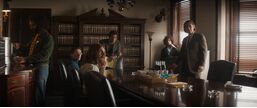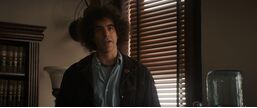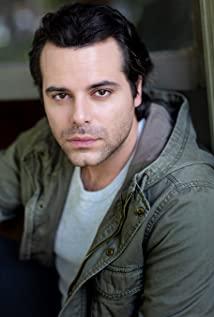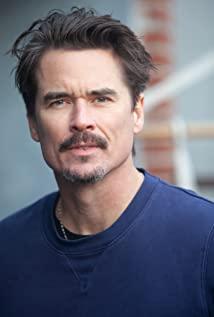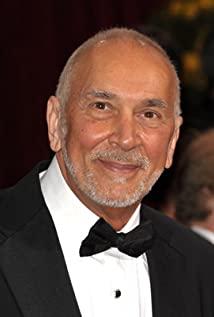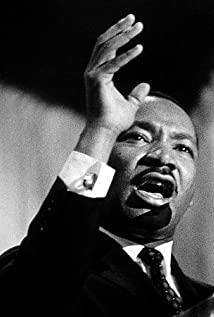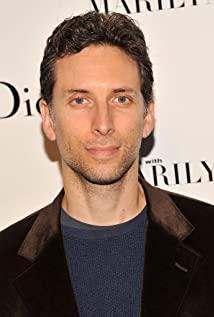Anti-war, equal rights, liberals, leftists, political turmoil, the civil rights movement in the 1960s...referring to the old and satirizing the present... Generally speaking, these elements have been arranged in this movie in a very high concentration.
In the same way, the audience will quickly get the feelings of "classic American law", "sharp court debate", "humanity glory", "justice finally wins" and so on.
However, when we think about it, when we do not discuss the ideals of directors and screenwriters, the portrayal of actors, the prospects of Oscar winning... I think the whole film is basically a warning from Hollywood to ordinary Americans.
To the Western world, "freedom", "democracy", and "human rights" are probably very universal truths. However, these concepts of supremacy must be experienced by the people in some ways. Under such circumstances, the personal examples that ordinary Western people can probably tell are nothing more than "voting rights", "rights protection", "judicial justice" and so on. For Americans in particular, trust, respect, and awe in the law and judicial system are traditions that existed and survived even before the independence of the United States. This is also the reason why we can see many wonderful American legal television and film works.
However, from the beginning of the film, I told the audience that I’m sorry, the court you will see is neither a court in Boston Law, nor a court in Law and Order. In this film, the Department of Justice in Washington, DC, and the Federal Court in Chicago are spared no effort to serve the administrative system; the independence of the judiciary under the principle of the separation of powers has disappeared. How is it, is it somewhat similar to today? Well, what will happen when the American judicial system is completely reduced to an administrative eagle dog?
1. Your jury is isolated from the world. In other words, their source of information is limited to the court and can be "guided." Well, you might think, maybe there will always be one or two "conscientious discoveries" who tend to be defendants. Sorry, the prosecution in the film (the U.S. prosecution system) can directly try to kick them out of the jury.
2. The trial can start without your lawyer being present. The film uses a black defendant as an example in this regard, but it does not require any great wisdom. You will also think that the person who was treated so unfairly may not be because of the skin color, but may also be due to any other reason (belief, opinion) in the new era. ...).
3. Even if you have lawyers, no matter how skilled they are, can you resist the constant "protest-protests effective" from the prosecution and judges?
4. Do you think you have found a key witness, but can this witness appear in court? The example used here in the film is the former attorney general. The reason for the current Ministry of Justice's protest is naturally that the testimony of former government officials is in danger of leaking secrets. How about it, it's the same work as the big drama at the end of last year. This film tells you directly through the mouth of the defense lawyer: If this theory is true, any US government official can refuse to testify in court. Similarly, you don’t need any great wisdom, so would you have such a worry that if you don’t appear in court to testify, will it be impossible to even be prosecuted in the next step?
5. Okay, your witnesses are finally allowed to testify in court, no problem, I can ask the jury to evade...
All in all, the trial in the film is an out-and-out show. From the beginning, the purpose of the trial was to kill chickens and monkeys. All objective conditions were to convict the defendant. The "presumption of innocence" principle, which is regarded as the most fundamental principle in the judiciary, is thrown directly into the trash can.
From these aspects, the deep meaning of the topic of this film is extremely lethal. Netflix no longer mechanically promotes liberal views or equal rights/civil rights issues. Instead, it has chosen the judicial system. At least for now in the United States, it is still a cross-sect and cross-party point of agreement to issue a warning to the American people if you don’t want to. Let this fundamental "belief", the light of America, which can really be used as a metaphor for the "lighthouse", be destroyed once, then it will be obvious how you can do it in two weeks.
The author believes that the psychological impact of Netflix’s shooting of the film and the time of its release on American audiences is far greater than that of other Hollywood "liberal" films.
Going back to the movie itself, the author believes that Frank Langra, who plays the judge, should definitely be booked for the Oscar for Best Actor. Generally speaking, in the American courts under the Hollywood lens, lawyers' ingenious ideas and rhetoric are undoubtedly important points. The depiction of judges is often stylized and facialized. However, in this film, the description of the judge definitely strengthens the interpretation of the film's deep intentions. From the very beginning, he found the defendant guilty with absolute contempt (with special emphasis on having the same surname but no relationship with one of the defendants), and unabashedly favored the prosecution (in most cases, he agreed to the prosecution’s request and technically interrupted the defense) Defense, no objection to the replacement of jurors, requesting the jury to avoid being a key witness for the defense...), a serious mentality of discrimination (the black defendant was tied up and gagged in the dock, and the prosecution could not tolerate it), Shameless (in the face of questioning and saying that the person has never been considered discriminatory), the professional ability is worrying (as a federal judge actually thinks the president and the attorney general are client relations), and he makes no secret of the influence of personal likes and dislikes on the judgment (in the defendant The representative tried to induce deep confession with a lighter sentiment before the final statement). Frank Langra performed the role perfectly, making the image of a law enforcement officer deeply rooted in the hearts of the people, which undoubtedly greatly increased the audience's worries about judicial injustice.
View more about The Trial of the Chicago 7 reviews


